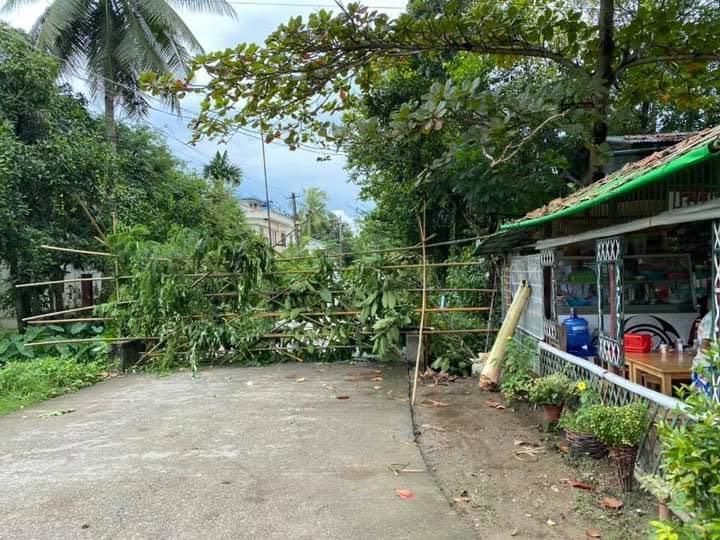
Since the current wave of Covid-19 reached Yangon three weeks ago, the lockdown rumour mill has been working overtime. More than 1,000 cases later and it happened: the government told Yangonites today to remain in the city and the beleaguered domestic airlines are once again banned from operating.
Of Yangon region’s 44 townships, 29 are under stay-at-home orders meaning trips outside are limited to work, shopping or medical treatment. Although many wards have taken a relaxed approach to the rules, some residents barricaded their streets this morning using bamboo, wooden pallets, tin sheets and anything else hanging around.
Meanwhile in Bago region, the roadblocks have taken on a more earthy appearance.
With another 257 cases recorded in the past 24 hours, the total number has risen to 2,265 and 14 deaths. The renewed wave of the pandemic has prompted health authorities to increase hospital capacity.
The 500-bed Phaunggyi Hospital has 495 Covid-19 patients, Dr Khin Khin Gyi, director of the Central Epidemiology Unit told Daily Eleven, adding that 500 beds would now be added to the facility.
The other two main Yangon hospitals that treat Covid-19 patients are also strained: as of September 9, the 90-bed Waibargi Infectious Diseases Hospital had 67 patients, and the 60-bed South Okkalapa Hospital had 57, according to government figures.
While Covid-19 patients would previously remain in hospital for up to more than 90 days until they had tested negative twice, said Dr Khin Khin Gyi, patients who have recovered and have not displayed any symptoms for 24 days can be discharged—a change in procedure hoped to create more space.
How long the restrictions will stay in place is anyone’s guess, but Aung San Suu Kyi told the nation yesterday that “if we all obeyed these restrictions strictly for two or three weeks, we can arrive at a situation when this disease would be under control.”


